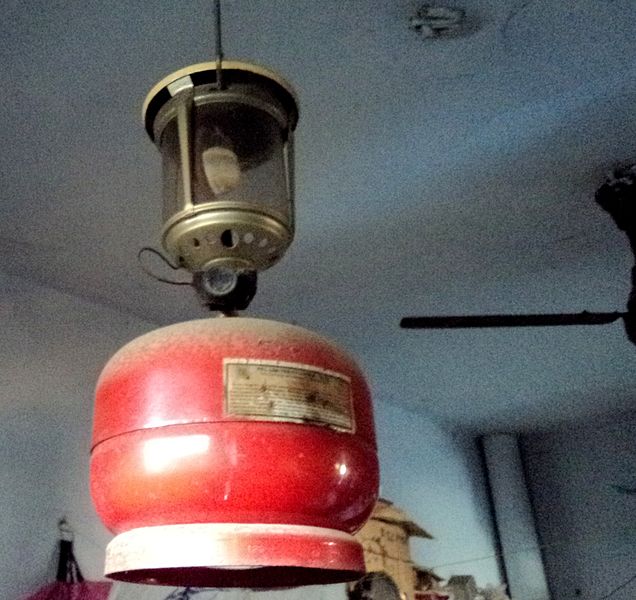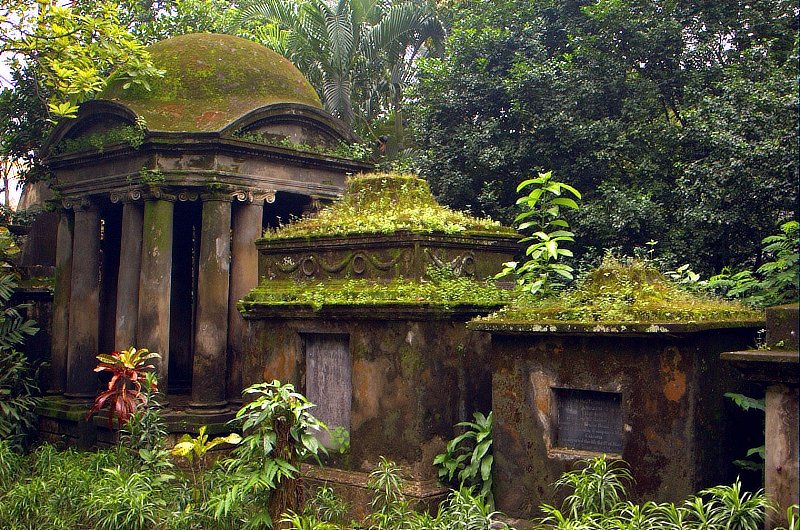Sitting on the banks of a sacred river beside a massive Asian city, preens in splendor a rail station without peer in the world. At the Howrah rail complex, largest in India, 600 trains pass through daily transporting one million passengers. In many countries, this single rail station would be denoted as a city unto itself. But Howrah receives only passing notice in the larger world since it sits in the shadow of the Pride of Bengal, Kolkata (Calcutta), metro home to 14 million souls.

On any single day, Howrah station puts on a fuller display of ‘madding crowd’ than any in Thomas Hardy’s wildest fancy: desperate passengers, red-shirted porters, hawkers in operatic form, pickpockets, brakemen and cleaners, the infirm who live by the pity of the crowds, railway police with truncheons at the ready, the homeless who find refuge where they can, and assorted thousands whose reasons remain uncertain. The stage upon which this drama unfolds includes 23 platforms while the streets around quiver with busses, rickshaws, bullock carts, taxis, bicycles, lorries, three-wheelers, and daring pedestrians who dart through a fearsome haze midst the unbroken bawling of horns. The cacophony is stupefying, at once bewildering and somehow – well, inspiring.
The station houses hotels, lounges, beauty salons, restaurants and bars, clinics, purveyors of every sort, sidewalk cobblers, astrologers, tailors, ear-cleaners, left-luggage officers and a warren of ticket agents. Somewhere there is a nerve center where a white-collar army toils beneath the whoosh of ancient fans.
I remember once glimpsing there the ‘Fairy Queen’, world’s oldest steam locomotive yet in regular use. Landed on India’s shores in 1855 and now a national treasure, it gained renown for catering to well-heeled tourists at the blinding speed of 25 mph (40 km/hr) as it chuffed past the palaces and forts of the Golden Triangle.

At my last visit to Howrah I arrived on an over-night train. Threading through the complex I made my way to a bus stand needing a ride to the Chowringhee commercial district of Kolkata. The route proceeds across the landmark Howrah Bridge over the Hooghly River. As we inched along in the morning rush hour, my eye fell on the back of a nearby bus. It was covered with a collage of movie posters, bills and notices of every kind. One in particular caught my eye. It featured a black-and-white image barely discernable as a human face. The headline read, ’Missing’. Some lines below told what can only have been a sad story.
It dawned upon me how extraordinary this was. In a city of many millions, a single individual had gone missing, whether as a runaway, through mishap, or by some evil hand. It brought me to the point of tears to think that however insignificant a life may seem in this swoon of human activity, its disappearance or loss elicits grief. And those who feel the emptiness will arm themselves with sketchy photocopies, plastering them on city transport in the hope that somewhere, someone will take pity on them with a shred of news. And all the while, millions course through the passageways and alleys of a train station which itself, like the missing soul, is one-of-a-kind.



Thank you for this window. Your prose, as always, is rapturous. This is not the India I usually picture (thinking of City of Joy, and most recently a small biography of Mother Teresa). My parents were blessed to travel there in 1967–post Mennonite World Conference in Amsterdam. You would love Dad’s descriptions of how, as humble Indiana farmers, they afforded it: years of frugal saving by not smoking, and selling off a few hogs. They went around the world to see how and if the grain sent through their efforts for CROP and Heifer were truly reaching those who were starving.
Hello, Melodie! Lovely to see your note. One of these days I’ll write a post on ‘Amish Peanut Butter Spread’, discovered recently while passing through your backyard. Of special note, the first ingredient listed on the label is ‘Karo syrup’. Kyrie eleison! But despite all that, we brought two bottles home for our grand children. Just to be sure they were acquainted with their Amish heritage! There’s poetic irony in the account of your parents’ visit to the India of an earlier time. Now those of us who had the rare gift of a childhood in India are nourished by the images and stories drifting back from the far side of the world – including train travel.
Always a pleasure to read your descriptive writings. AsI read my mind is carried to those places and when it is of India many memories return to my mind. Thanks for using your gifting and sharing with those if us that have done this journey on earth together in our childhood.
Hi, Sylvia! Good of you to write! Is there anything quite as intoxicating as the rhythms of train travel across such a landscape?
Thank you Jonathan. The one lost sheep!
Thank you Jonathan. The one lost sheep, the one lost soul
Hi, Orlando! You live in such a city, too! Where you take a shepherd’s crook with you into the day!
Your prose, as always, captures the feel, the chaos, even bringing back to me the scents
of this place… nicely written, thank you!
So – Tim, riding the rails with you would be the final touch. Company on an evocative journey – that’s exquisite.
Oh Jonathan, such a wonderful musing. Thank you! Yes, one lost soul – nowadays people in many countries would turn ro the internet for help in finding someone. It was touching that India would still be using photocopying and posting in public places for this search. Warmest best, Doug
A wonderful description of such a great place, so full of chaos and so full of purposeful folks on the move in a million mysterious ways and a miliion directions. The last time I was there was several years ago, to escort two ancient Chinese gentlemen in search of the holy Ganga.. They had arrived on my flight from Kunming to Calcutta with a scrap of brown paper on which someone had scrawled: HOWRAH STATION to VARANASI. On arrival, i had managed to locate a Chinese-speaking travel agent in Chinatown, but the two ancients would have none of.it All they wanted was to get to Howrah Station. Without any command of English, leave alone Hindi and just a guide book in Chinese as protection. Into the chaos they plunged, ignoring all my sign-language pleas for better planning. Raising that little brown scrap in the air, they let Howrah Station swallow them. And so it did, adding two more to its register of journeying souls. Howrah Station their gateway to salvation. Ashoke
.
Hello, Ashoke! How wonderful to see your hilarious and touching account of the pilgrims from Kunming! Though I am sure that pilgrims do sometimes meet with trouble – in India, on the banks of the sacred river, with lofty aspiration, they knew they could come to no harm. Only one thing to do – press on! So, bless the madding crowd at Howrah who shepherded them on to a train – ticket or no ticket – so that their goal might be achieved! And when they will have returned home, they will be stout defenders of peaceable ties with all of God’s children.
Ah yes, the Howrah train station is an unforgettable experience. Shortly after we were married (years ago) my husband took me to Bangladesh where he had lived. We boarded a night train at Howrah station and all the chaos and activity you described overwhelmed and frightened me. In the morning, however, looking out the window seeing the landscape – my sense of adventure and
courage returned. It is amazing that the station continues on in much the same manner.
The faded picture of the missing person is a poignant observation. Thanks for sharing your stories.
Namaste, Joyce! There is poetry in the story you tell about the two of you: the wild, uncertain journey into the unknown world of the one you love. Not all survive such a journey that passes through a Howrah station! But it is often these very encounters that later become the love lore of time, that cause us to be wistful and reverent about the mysteries that cling to otherwise ordinary lives. Here’s a toast to your courage!
I’m hoping our summer jaunt will include a. similar throng at the Barcelona train station to see Sam and Peter. Is 2hrs between arrival flight and train departure too much slack? I think Dad would have cut it finer. Thanks again for the reminders of far off places.
Indeed, a great, detailed account of memories for all of us who have been there. I might only add: can’t you almost smell the toilet areas–thanks in part to those users who likely know little about flushing, and then there’s the anxiety of your driver trying to get closer to the station, with the snarled traffic in blocks surrounding. Aren’t we grateful for the capacity of memory?
This brings back memories of all the trips to and from Landour (1947-59) that began or ended at Howrah Station. At one point the place was full of people living there and then that was replaced by a lattice of tall fences to keep the squatters out. My attache case was stolen once from where my mother had put it down next to her leg. The last time I was there was in 1987, my one and only trip back to the land of my birth. I had been met at Dum Dum airport by the last missionary from my parents Bengal Orissa mission field. It was the evening before Holi and the whole population of Calcutta seemed to be leaving town. We were unable to get on the first train and only got on the second by forming a flying wedge behind a porter which got us into a third class compartment. I spent then night squatting on an upper bunk. There was a sign saying the compartment was meant for 40 people. I lost count somewhere around 150.
Hello, Gil! You should have been at my elbow while I was composing the lines on the Howrah station! Your recollections would have added depth to my impressions. What would have become of us passengers without those savvy porters who deposited us, bisters, trunks and all, in the precise boogie and bunk assigned to us? They were angels in disguise, except that they also required payment! I suppose we might say that the journey, after all, is about sharing, however many stowaways there are.